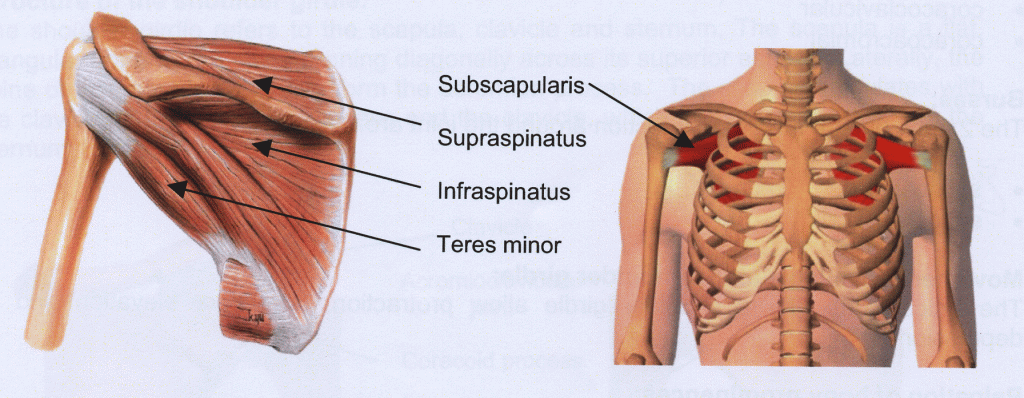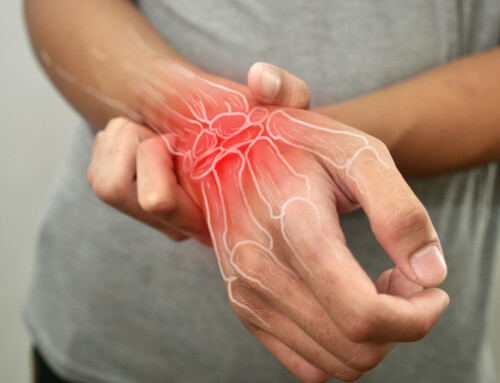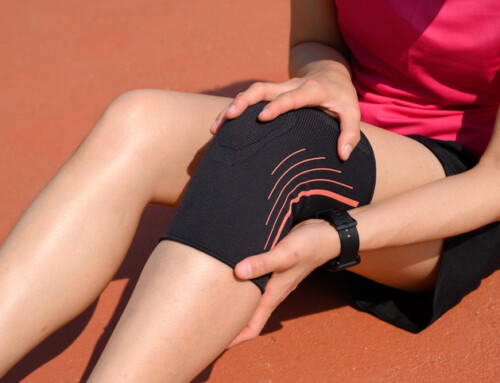By Andrew J Gaetano, PT, DPT, OCS, CSCS

Tips for Preventing Rotator Cuff Injuries
The rotator cuff is a group of four shoulder muscles and tendons which connect the humerus (upper arm) bone to the shoulder blade. These muscles are not only important in helping to move your arm, but are even more important in controlling the movement at your shoulder, and making sure the movement is smooth, fluid, and painfree, preventing rotator cuff injury.
If you are older than age 40, you’ve probably known someone that has had a problem with or tear in their “rotator cuff”. There’s a reason for this! Typically as we age there is a potential for bony spur formation (arthritis) in the shoulder joint, as well as gradual fraying of the tendons of the rotator cuff. It can happen at any age, but tearing of these tendons can occur over time with months/years of microtrauma caused by these bony spurs (chronic tear), vs.an acute tear, which occurs with a specific injury (i.e. being pulled abruptly by a dog leash is a very common one we see). Often times shoulder dysfunction is described as impingement, with or without a tear. This is a scenario in which the space in the shoulder joint is decreased and “pinching” together, and can eventually contribute to a tear. It can be quite painful. A tear in these tendons can cause significant disability and limitation in someone, especially those who use overhead motions during their job/activities of daily living.
Taking steps to prevent injury in this area, strengthen the rotator cuff, avoid activities or positions that may contribute to tears, and improve the quality of motion in the shoulder joint is a smart idea to dodge the bullet of a rotator cuff tear.
The physical therapists at Capital Area Physical Therapy & Wellness can help you decrease your risk of developing or worsening a rotator cuff tear, especially if you seek assistance at the first sign of shoulder pain or discomfort. To avoid developing or progressing to a rotator cuff tear from an existing shoulder impingement, it is imperative to avoid future exacerbations.
Avoid repeated overhead arm positions that may cause shoulder pain. If your job requires such movements, ask us to teach you arm positions that may be used with less risk.
Quick Tips to Keep Rotator Cuff Muscles Healthy:
- Apply rotator cuff muscle and scapular strengthening exercises into your normal exercise routine. The strength of the rotator cuff is just as important as the strength of any other muscle group. To avoid potential detriment to the rotator cuff, general strengthening and fitness programs may improve shoulder health. This is something the PTs will show you at an appointment!
- Practice good posture. A forward position of the head and shoulders has been shown to alter shoulder blade position and create shoulder impingement syndrome.
- Avoid sleeping on your side with your arm stretched overhead, or lying on your shoulder. These positions can begin the process that causes rotator cuff strain
- Avoid carrying heavy objects at your side; this can strain the rotator cuff.
- Avoid smoking; it can decrease the blood flow to your rotator cuff.
- Consult us at the first sign of symptoms
If you had a rotator cuff surgery recently (or even a long time ago and are still having problems), once your doctor says you’re ready for therapy, we’ll be here to help you through the rehab process.
Obviously, if you have had recent surgery, listen to your doctor for post operative instructions and precautions- exercise will be at the discretion of your surgeon and your treating therapist only.
Here is a video demonstration of shoulder/rotator cuff resistance exercise technique.





